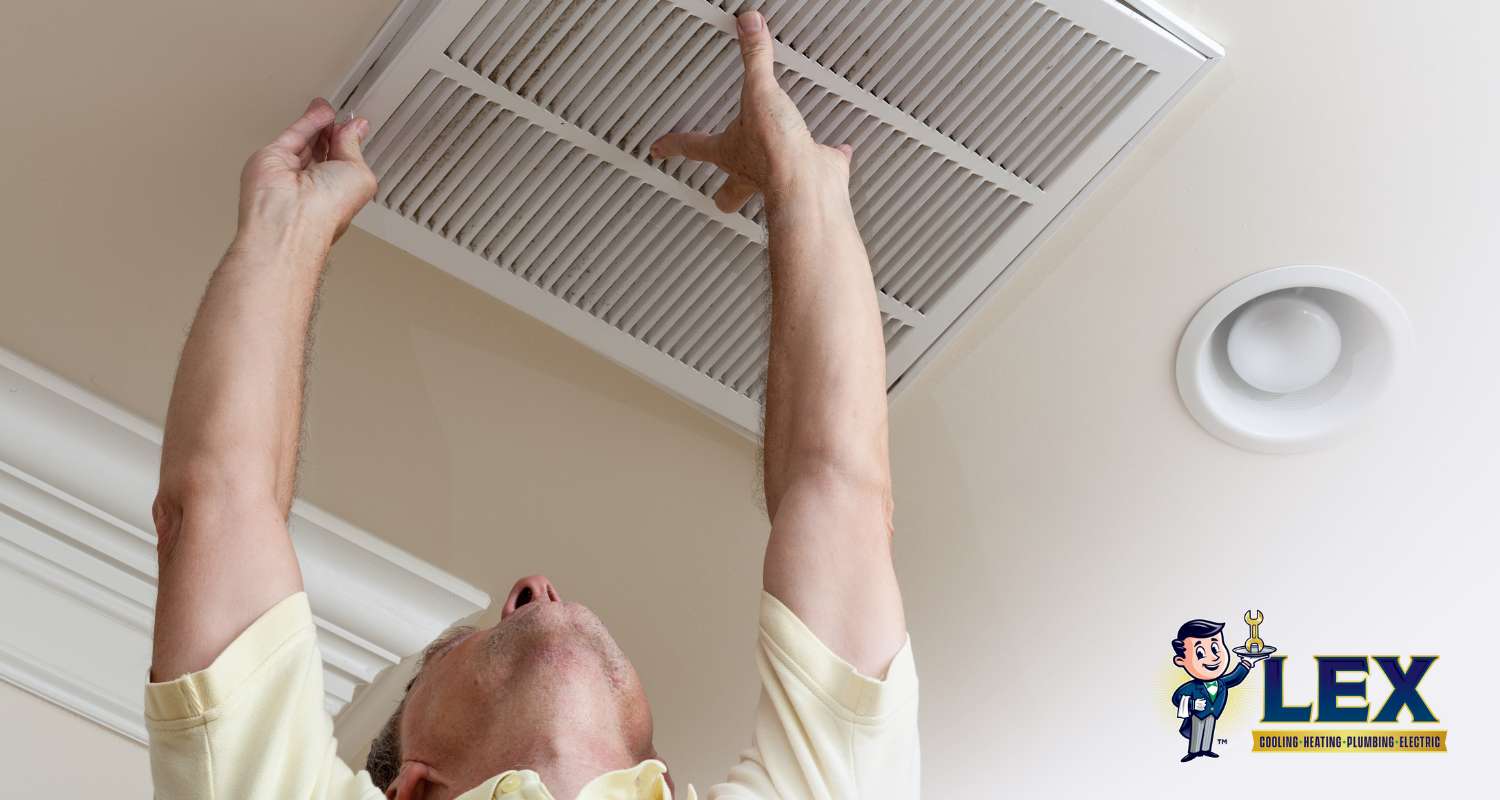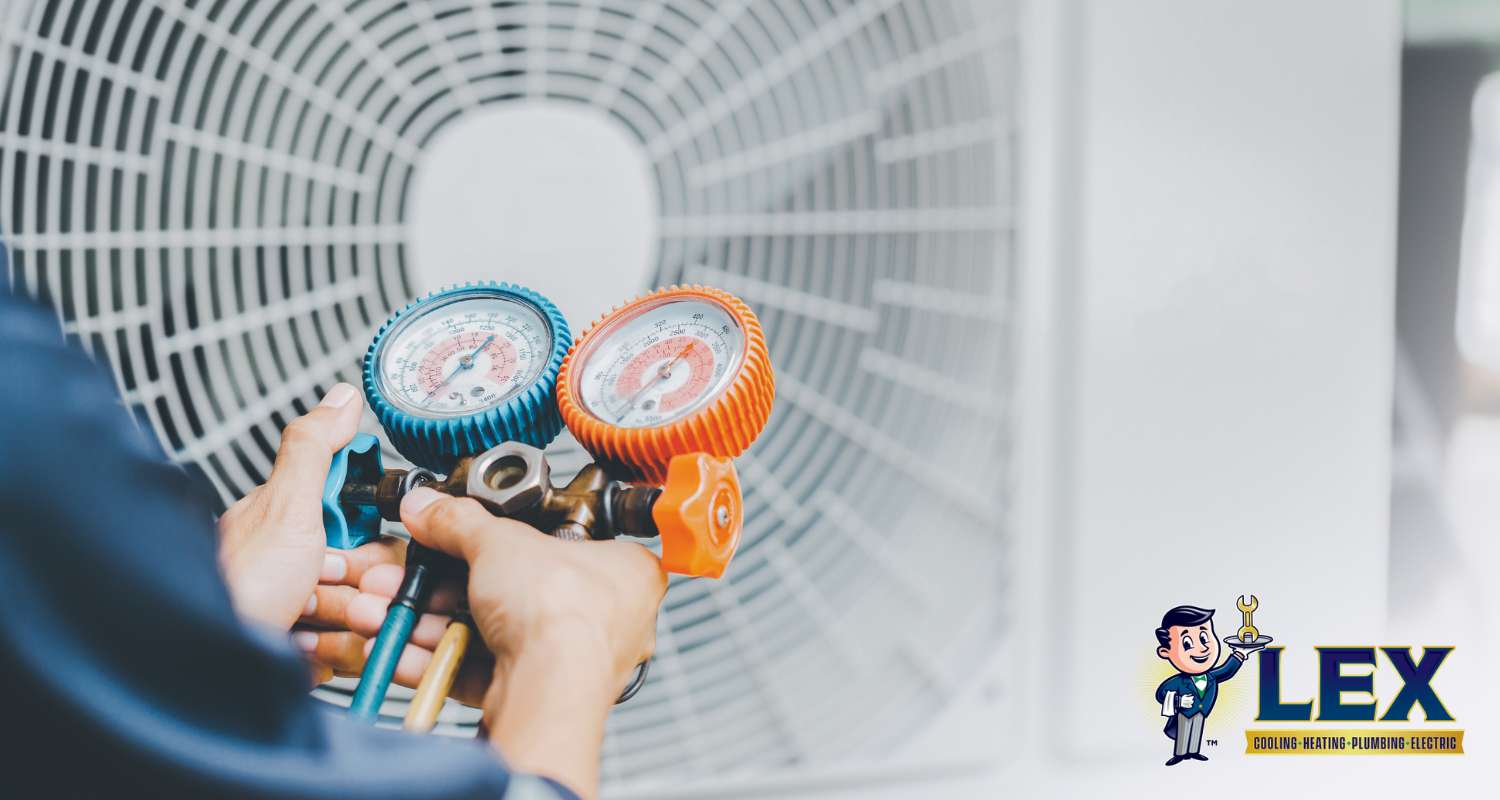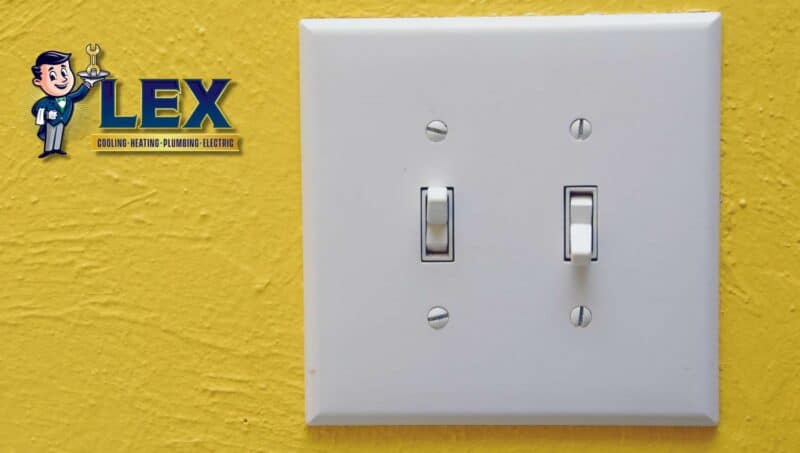Nothing is more frustrating than coming home from work to a house that’s hotter than it is outside. If your air conditioner struggles to reach your desired thermostat setting, your unit could be low on refrigerant. Even high-efficiency central air systems are not designed to withstand multiple seasons without the proper amount of coolant.
In this post, the Dallas AC repair technicians at Lex Air Conditioning and Heating explain the common causes behind refrigerant leaks and what signs to look out for that can indicate your air conditioner is steadily losing refrigerant.
Not Keeping Up with Dallas’ Heat?
It’s not uncommon for homeowners and small businesses in Dallas and the surrounding areas to notice signs that their air conditioners are not performing up to par around the end of summer and the beginning of autumn, particularly if they have not received a spring AC tune-up before the hot season kicked off. Why? Prolonged use of your air conditioner over the summer months may have depleted the system’s efficiency, thereby reducing its cooling capacity.
However, the problem may not always be due to low refrigerant levels. But before we diagnose a low coolant issue, follow the steps below to see if the problem continues.
- Keep air vents open: Closing too many vents can restrict airflow, making your home hotter and forcing your AC to work harder. While closing vents in unused rooms is okay, avoid closing more than five vents at a time.
- Turn the thermostat up: Adjusting the thermostat to a higher temperature when you’re away can give your system a break and save on monthly energy bills.
- Keep blinds closed during the day: Blinds can reflect the sun’s rays during the day when it is at its hottest and prevent your home from soaking up additional warm air.
- Grill dinner outside: If possible, avoid using the oven and try to cook dinner outdoors. Hot air from the oven can contribute to excessive heat in a home.
- Do laundry and run the dishwasher at night: Just like using the oven, doing laundry and running the dishwasher during the day can contribute to uncomfortable heat in a home. Wait until temperatures drop at night to use appliances that produce warm air.
- Turning off power attic ventilators: Power attic ventilators are meant to cool down attics but can pull conditioned air from inside the house, leading to less cool air where needed.
- Trim bushes around the outdoor AC unit: Overgrown bushes may block airflow to the outdoor unit, causing it to work harder to keep the home cool.
- Change the AC filter: Dirty air filters cause airflow resistance, leading to cooling issues. Most air filters should be replaced monthly and properly sized to your specific unit.

How Does Coolant Affect AC?
Coolant, also known as refrigerant, is essential for heat exchange in air conditioning systems. It cycles between compression and expansion to absorb indoor heat and release it outside. This cycle depends on the coolant’s ability to transition between liquid and gas forms under various conditions.
Modern air conditioners use different coolants, mainly differing in environmental impact and efficiency. R-22 (Freon) was common in older units but is now phased out due to its ozone-depleting effects. R-410A, or Puron, is more eco-friendly and the new standard. It operates at higher pressures for better efficiency but requires specific system components.
Signs Your AC Unit Has Low Refrigerant
A well-functioning air conditioner relies on the correct amount of refrigerant to cool your home effectively. However, over time, a refrigerant leak or wear and tear can decrease refrigerant levels, compromising the system’s ability to operate efficiently.
Recognizing the signs of low refrigerant can help you address issues promptly, avoid further damage, and ensure your air conditioning unit continues to provide reliable cold air.
Ice Formation on Evaporator Coils and Refrigerant Lines
When the refrigerant level is insufficient, it leads to low pressure within the evaporator coils, which causes the temperature to fall below normal. This temperature difference can lead to condensation on the coils freezing, resulting in ice buildup.
If you notice ice accumulation on the refrigerant line or evaporator coils, it’s important to address this issue quickly and contact a qualified AC repair technician from Lex Air as soon as possible!
Reduced Cooling Efficiency
Reduced cooling efficiency is a common sign that your air conditioner may be low on refrigerant. When there isn’t enough refrigerant, the system struggles to absorb heat from the indoor air, resulting in less effective cooling. You might notice that the air coming from your vents is not as cold as it used to be or that your AC has to run longer and work harder to maintain the desired temperature.
Longer Run Times
Longer run times in your air conditioning system can be a telltale sign of low refrigerant levels. When the coolant is low, the AC unit cannot efficiently transfer heat, causing it to operate for extended periods to achieve the set temperature on the thermostat.
If your air conditioner is taking longer than usual to cool your home or seems to run continuously, it might be time to check for issues related to refrigerant levels.
Hissing or Bubbling Noises
Strange HVAC noises, such as hissing or bubbling noises from your air conditioner, typically occur when the pressurized refrigerant escapes through cracks or holes in the AC’s system. Hissing generally suggests a gas leak while bubbling noise might indicate a refrigerant leak.

Elevated Indoor Humidity Levels
Normally, an air conditioner cools the air and removes excess moisture to maintain a comfortable humidity level inside your home. However, when the unit is low on refrigerant, the system’s cooling capacity diminishes and becomes less effective at humidity control. This results in a stickier, more uncomfortable indoor environment, especially during humid weather.
Increased Energy Costs
When the refrigerant is low, the entire system has to work harder and run longer to achieve the same level of cooling, leading to excessive energy consumption. This inefficiency strains the AC unit’s components and results in significantly higher utility bills. Checking for signs of low refrigerant and addressing them promptly can help restore efficiency and reduce your electric bills.
Short Cycling
Short cycling, where your air conditioner frequently turns on and off in quick succession, is another potential symptom of low refrigerant levels. This often occurs because the AC unit cannot maintain the desired temperature due to low refrigerant, triggering the thermostat to start and stop the system.

Why Might Your Air Conditioner Be Low on Coolant?
Air conditioners are designed as sealed systems, meaning they shouldn’t lose coolant under normal conditions. If your air conditioner is low on coolant, it usually indicates a leak within the system.
Coolant levels can drop for various reasons, such as physical damage to the coils or connections, corrosion, or improper installation. Since the system is sealed, any loss of coolant is a sign of underlying issues that need immediate attention from a certified HVAC professional.
Common Reasons for Coolant Leaks
Coolant leaks in air conditioning systems can result from several different issues. Below are the most common reasons your air conditioner may be leaking coolant:
- Corrosion: Over time, the metal components of an air conditioner can corrode due to exposure to moisture, leading to small holes through which coolant can escape.
- Physical Damage: From accidental impacts during other home maintenance activities or severe weather, physical damage can puncture or fray refrigerant lines, leading to leaks.
- Loose Connections: Connections between different components of the AC system can become loose, allowing refrigerant to leak out.

How To Check AC Refrigerant Level
Homeowners experiencing any issues that have been mentioned above can safely check for signs that their system is low on coolant by following these steps:
- Turn Off the AC Unit: Before inspecting your AC system, ensure it is completely turned off to prevent electrical hazards or further damage.
- Inspect the Thermostat Settings: Confirm that your thermostat is set to cool and that the desired temperature is lower than the current room temperature.
- Check the Airflow: Check for weak or warm airflow, which could suggest low refrigerant levels.
- Look for Ice on the Evaporator Coil: Open the access panel to the evaporator coils. If you see ice buildup, it’s a sign of a possible leak.
- Listen for Unusual Noises: Listen for hissing or bubbling noises from the unit, as it could indicate a refrigerant leak.
- Examine the Refrigerant Lines: Inspect the refrigerant lines for visible signs of damage, corrosion, or ice formation.
If any of these signs point to a refrigerant problem, it’s crucial to stop DIY efforts and call a professional HVAC technician as soon as possible. Handling refrigerants requires specialized tools and knowledge, as well as EPA certification due to the potential environmental and health hazards associated with refrigerants.
The HVAC professionals from Lex Air can accurately diagnose the issue, safely repair any leaks, and recharge the system with the appropriate amount of refrigerant. Attempting to handle refrigerant yourself can result in injury, improper repairs, and further damage to your AC unit.

How Lex Air Can Help
Lex Air Conditioning and Heating, a dedicated air conditioning company in North Texas, is dedicated to ensuring comfort and peace of mind with top-notch air conditioning system services. Our team of experienced, EPA-certified technicians is equipped to handle all your air conditioning needs, from diagnosing and repairing refrigerant leaks to performing AC unit repairs, routine air conditioner tune-ups, and full air conditioning system installations and replacements.
If you suspect a refrigerant issue or any other air conditioning system problem, call Lex Air at (972) 217-8955 or reach out online to schedule your cooling system inspection today.













